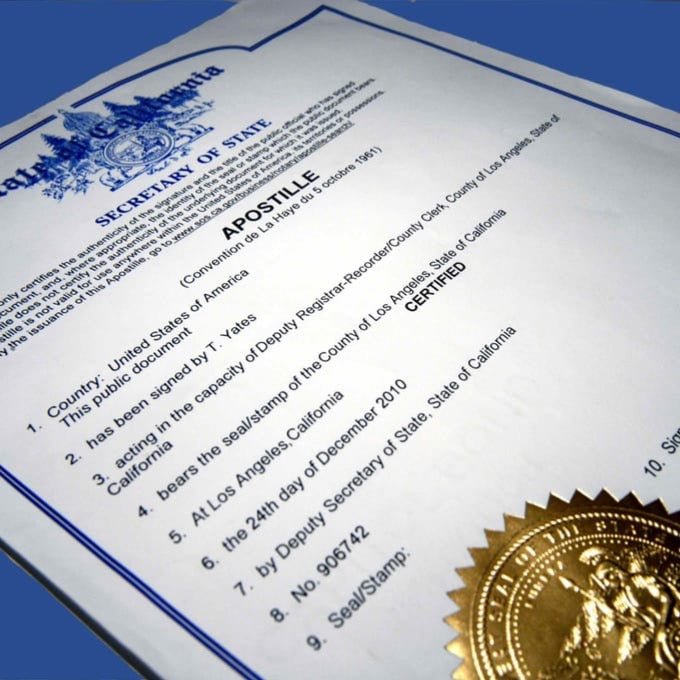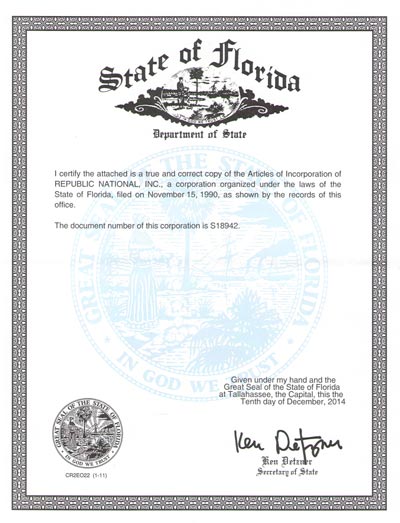Recognizing the Apostille Refine: A Comprehensive Overview to International Paper Authentication
Browsing the elaborate landscape of global file verification can be discouraging without a clear understanding of the apostille procedure. What precisely specifies an apostille, and why is it so critical for documents destined for Hague Convention countries?
What Is an Apostille?
An apostille is an official qualification that validates the credibility of a record for usage in one more nation. This certification, released by an assigned authority in the nation where the record originated, makes sure that the file is acknowledged as legitimate and legit in the worldwide field. The process of obtaining an apostille includes numerous actions, consisting of the confirmation of the record's trademarks, seals, and stamps by proper governmental bodies.
The apostille functions as a globally recognized type of authentication, enabled by the Hague Convention of 1961. This treaty, formally called the Hague Convention Eliminating the Requirement of Legalisation for Foreign Public Records, systematizes the procedure of paper accreditation among participant countries. The apostille itself is a standardized certification which contains details information, such as the providing authority, the nation of beginning, and the date of issuance.
It is necessary to note that not all records are qualified for an apostille. Usually, public papers like birth certifications, marital relationship licenses, court orders, and instructional diplomas receive this qualification. Personal records, such as contracts and agreements, may call for registration and added actions to qualify.
Significance of Apostille
Recognizing what an apostille is establishes the phase for appreciating its relevance in international dealings. houston tx apostille. An apostille, essentially a form of certification provided by an assigned authority, validates the credibility of a record for use in foreign nations that are notaries to the Hague Apostille Convention. This standardized procedure eliminates the demand for further legalization by embassies or consular offices, consequently enhancing worldwide deals
The importance of an apostille can not be overemphasized. It ensures the integrity and acceptance of important files-- such as birth certifications, marriage licenses, and academic diplomas-- across boundaries. For services, it helps with the smooth conduct of global trade, mergers, and purchases by providing a trusted approach of paper verification. This decreases bureaucratic hurdles, saving both time and sources.
In addition, an apostille enhances legal safety and conformity. Governments and organizations can confidently rely upon the authenticity of records bearing an apostille, mitigating the threat of fraud view it and misstatement. Hence, the apostille serves as a crucial device in promoting worldwide teamwork and trust. Its role in fostering effective and safe and secure international transactions highlights its indispensable worth in today's interconnected globe.
Files That Require Apostille
When involving in international deals or lawful issues, particular records commonly require the verification provided by an apostille. This ensures their recognition and acceptance in nations that are signatories to the Hague Apostille Convention. Typically, individual papers such as birth certifications, marriage certifications, and fatality certifications require an apostille, particularly when they are used for processes like migration, marital relationship abroad, or worldwide probate issues.
Educational records are another group often needing apostilles. Diplomas, transcripts, and scholastic documents typically need this verification for functions such as seeking more education, employment, or professional licensing in an international nation (houston tx apostille). This action assures that the documents are recognized as reputable and valid
Legal documents, including powers of lawyer, testimonies, and court orders, additionally frequently require apostilles. Organization records such as certifications of unification, laws, and industrial agreements might require an apostille to promote global profession, establish international branches, or engage in cross-border lawful process.
Steps to Get an Apostille

Obtaining an apostille involves a multi-step procedure that guarantees the credibility and approval of your documents in international nations. The initial action is recognizing which records require an apostille. houston tx apostille. Common files include copyright, marriage licenses, academic transcripts, and company records
As soon as recognized, the paper must be licensed by the suitable releasing authority. After accreditation, the document needs to be submitted to the marked Competent Authority in the file's nation of origin.
The article source entry procedure usually needs a finished application, the initial document, and a charge. Some jurisdictions may supply the choice of expedited handling for an additional charge. Upon successful confirmation, the Competent Authority will attach the apostille certification to the file, therefore verifying its authenticity.
Usual Difficulties and Solutions
Browsing the apostille procedure can present several common obstacles blog that, if not correctly dealt with, might postpone or make complex paper verification. Each nation has specific requirements for the types of files that can be apostilled, and any discrepancy from these can result in being rejected.
One more usual obstacle is recognizing the different handling times. Processing times can differ dramatically in between countries and also in between various areas within the exact same nation. It is vital to represent these variations when planning the apostille procedure to stay clear of unanticipated hold-ups.
Additionally, language obstacles can present considerable challenges. Files in a foreign language frequently require certified translations, and any kind of mistakes in translation can result in further complications. Engaging a specialist translation solution can reduce this risk.

Conclusion
Understanding the apostille procedure significantly enhances the efficiency of global record verification. By comprehending the need of recognizing and accrediting required records, and browsing the submission to the Competent Authority, the procedure ends up being more convenient. Recognition of typical challenges, such as insufficient submissions and language obstacles, even more help in protecting against prospective delays. Making certain files are properly apostilled promotes their approval in Hague Convention signatory nations, thereby sustaining seamless worldwide legal and administrative treatments.